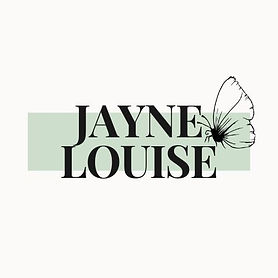
Narcissistic abuse is a form of emotional and psychological abuse that occurs when someone with narcissistic personality disorder (NPD) seeks to control and manipulate their partner or other close relationships for their own benefit.
Narcissists have a grandiose sense of self-importance, a need for admiration, and lack empathy for others. They often feel entitled to treat others however they want, and they may use a variety of tactics to control and manipulate people.
-
Gaslighting: This is a form of manipulation in which the narcissist denies or twists reality to make the person question their own thoughts, feelings, and memories. For example, the narcissist may say something hurtful and then deny saying it, or they may accuse the person of being crazy or imagining things.
-
Triangulation: This is a tactic in which the narcissist involves a third party in a conflict in order to pit the two people against each other. For example, the narcissist may complain to a friend or family member about the person, or they may encourage the person to confide in someone else about the narcissist's behaviour.
-
Love-bombing: This is a tactic in which the narcissist showers the person with attention, affection, and gifts in order to win them over. This is often followed by a period of devaluation, in which the narcissist withdraws their attention and affection in order to make the person feel insecure and dependent.
-
Silent treatment: This is a form of punishment in which the narcissist refuses to communicate with the person. This can be done for a short period of time, or it can be used as a long-term tactic to control and manipulate the person.
-
Name-calling: This is a form of verbal abuse in which the narcissist insults and degrades the person. This can be done in private or in public, and it can be used to make the person feel worthless and humiliated.
-
Blaming: This is a tactic in which the narcissist refuses to take responsibility for their own actions. Instead, they blame the person for their own problems. This can make the person feel guilty and responsible for the narcissist's behaviour.
-
Controlling: This is a tactic in which the narcissist tries to control every aspect of the person's life. This can include controlling where the person goes, who they talk to, and what they do. This can make the person feel trapped and isolated.
The goal of narcissistic abuse is to control and manipulate the person in order to meet the narcissist's own needs. This can have a devastating impact on the person, leading to low self-esteem, anxiety, depression, and post-traumatic stress disorder. People who experience narcissistic abuse may also have difficulty trusting others and forming healthy relationships.
There are 4 stages to Narcissistic Abuse:
-
Idealisation: In the idealisation stage, the narcissist showers the person with attention, love, and admiration. They may make promises of a perfect future together, and they may make the person feel like they are the most important person in the world.
-
Devaluation: The devaluation stage begins when the narcissist starts to criticise, belittle, and demean the person. They may make the person feel worthless, inadequate, and like they are never good enough.
-
Discard: The discard stage is when the narcissist finally abandons the person. They may do this suddenly and without warning, or they may slowly withdraw their attention and affection until the person is left feeling alone and abandoned.
-
Hoovering: This is when the narcissist tries to reel the person back into the relationship. They may do this by apologising, love-bombing, or making promises of change. The goal of hoovering is to get the person to feel sorry for the narcissist and to give them another chance.
It is important to remember that hoovering is a manipulation tactic. The narcissist is not truly remorseful for their actions, and they are not going to change because they do not fully understand their behaviour. Therefore, you are likely to end up back in the same abusive cycle. This can happen repeatedly, and when the cycle ends, the person will need to find a way to heal from the abuse.